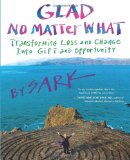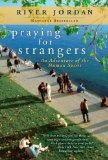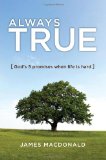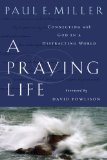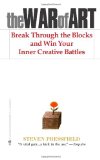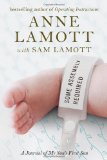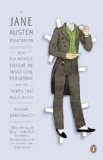 A Jane Austen Education
A Jane Austen Education
How Six Novels Taught Me About Love, Friendship, and the Things That Really Matter
by William Deresiewicz
The Penguin Press, New York, 2011. 255 pages.
Starred Review
2012 Sonderbooks Stand-out: #3 Nonfiction: Personal Stories
I’m a huge Jane Austen fan. I wrote a paper on her my Sophomore year of college. I had lots of time in which to write the paper — so I read ALL her novels, and then wrote the paper staying up all night the night before it was due.
A Jane Austen Education is perhaps my favorite so far of nonfiction Jane Austen take-offs. William Deresiewicz was a graduate student of literature, and he writes about how things he learned from Jane Austen mirrored and informed his life as he became an adult. He’s not afraid to pull out lessons that he needed to learn, and there’s a lovely combination of personal observations and stories with ideas and examples from the novels.
Here’s how he begins:
I was twenty-six, and about as dumb, in all human things, as any twenty-six-year-old has a right to be, when I met the woman who would change my life. That she’d been dead for a couple of hundred years made not the slightest difference whatsoever. Her name was Jane Austen, and she would teach me everything I know about everything that matters.
He goes through all the novels, matching them up to different periods of his life. There’s lots and lots of good stuff here. He has studied all the novels and studied Jane Austen’s life, so he has plenty of information to convey, and along the way, he comes up with some profound insights and self-deprecating humor. I’ll include at least one paragraph from the chapter on each novel, but there’s a lot more where this comes from.
From Emma:
There was one more thing about my life that had to change, now that I’d read Emma: my relationships with the people around me. Once I started to see myself for the first time, I started seeing them for the first time, too. I began to notice and care about what they might be experiencing, and they began to develop the depth and richness of literary characters. I could almost feel along with their feelings now, as we talked, feel the contours of them as they tried to express them to me. Instead of a boring blur, the life around me now was sharp and important. Everything was interesting, everything was meaningful, every conversation held potential revelations. It was like having my ears turned on for the first time. Suddenly the world seemed fuller and more spacious than I had ever imagined it could be, a house with a thousand rooms that now lay open to explore.
From Pride and Prejudice:
But Austen, it turned out, did not see things that way. For her, growing up has nothing to do with knowledge or skills, because it has everything to do with character and conduct. And you don’t strengthen your character or improve your conduct by memorizing the names of Roman emperors (or American presidents) or learning how to do needlework (or calculus). You don’t do so, she believed, by developing self-confidence and self-esteem, either. If anything, self-confidence and self-esteem are the great enemies, because they make you forget that you’re still just a bundle of impulse and ignorance. For Austen, growing up means making mistakes.
From Northanger Abbey:
Catherine thought she saw things at Northanger Abbey that weren’t really there, but the novel, my professor explained, was not against imagination. Quite the opposite. It was against delusion, against projection, against thinking the same old thing again and again, whether it’s the idea that all balls are “very agreeable indeed” or that all old houses conceal dark secrets. True imagination, he went on, means the ability to envision new possibilites, for life as well as art. Mrs. Allen and the rest of Austen’s dull adults were not ignorant or stupid so much as they were unimaginative. Nothing was ever going to change for them, because they couldn’t imagine that anything ever would.
From Mansfield Park:
How different this was, I realized, from the kinds of stories I had trained myself to tell my friend and his wife, those polished little anecdotes that had to have a laugh at every turn. “You shall tell me all about your brothers and sisters.” All about: no impatience, no competitiveness, no interruptions, no need to worry about being entertaining, no having to watch your listeners’ eyes glaze over while they thought about what they were going to say when you finally stopped talking already. Did Edmund really care about her brothers and sisters? Probably not. But he cared about her, and she cared about them, and that was enough for him. To listen to a person’s stories, he understood, is to learn their feelings and experiences and values and habits of mind, and to learn them all at once and all together. Austen was not a novelist for nothing: she knew that our stories are what make us human, and that listening to someone else’s stories — entering into their feelings, validating their experiences — is the highest way of acknowledging their humanity, the sweetest form of usefulness.
From Persuasion:
Putting your friend’s welfare before your own: that was Austen’s idea of true friendship. That means admitting when you’re wrong, but even more importantly, it means being willing to tell your friend when they are. It took me a long time to wrap my head around that notion, because it flew so strongly in the face of what we believe about friendship today. True friendship, we think, means unconditional acceptance and support. The true friend validates your feelings, takes your side in every argument, helps you feel good about yourself at all times, and never, ever judges you. But Austen didn’t believe that. For her, being happy means becoming a better person, and becoming a better person means having your mistakes pointed out to you in a way that you can’t ignore. Yes, the true friend wants you to be happy, but being happy and feeling good about yourself are not the same things. In fact, they can sometimes be diametrically opposed. True friends do not shield you from your mistakes, they tell you about them: even at the risk of losing your friendship — which means, even at the risk of being unhappy themselves.
From Sense and Sensibility:
If love begins in friendship, I was now able to see, it has to adhere to the principles of friendship as Austen understood them. The lover’s highest role, like the friend’s, is to help you to become a better person: push you, if necessary, even at the risk of wounded feelings. Austen’s lovers challenged each other: to be less selfish, more aware, kinder, more considerate — not only toward each other but to everyone around them. Love, I saw, for Austen — and what a change this was from the days of my rebellious youth — is an agent not of subversion, but of socialization. Lovers aren’t supposed to goad each other toward extremes of transgression, the way that Marianne and Willoughby did; they’re supposed to teach each other the value of behaving with propriety and decorum, show each other that society’s expectations are worthy, after all, of respect. Love, for Austen, is not about remaining forever young. It’s about becoming an adult.
Now, undoubtedly, my knowledge of all the Austen novels contributed to my enjoyment of this book, but I have little doubt that it would also encourage people to read the novels who haven’t before. All in all, it’s a wonderful contribution to Austenalia, a delightful, thoughtful, even scholarly contribution, and from a male perspective, as a nice contrast to so many others. I highly recommend that Jane Austen fans read this book.
Buy from Amazon.com
Find this review on Sonderbooks at: www.sonderbooks.com/Nonfiction/jane_austen_education.html
Disclosure: I am an Amazon Affiliate, and will earn a small percentage if you order a book on Amazon after clicking through from my site.
Source: This review is based on my own copy, which I got at an ALA conference.
Disclaimer: I am a professional librarian, but I write the posts for my website and blogs entirely on my own time. The views expressed are solely my own, and in no way represent the official views of my employer or of any committee or group of which I am part.
